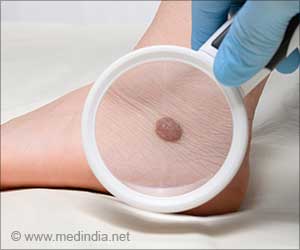Prostate cancer drug Dutasteride could make PSA screening more effective.
Prostate cancer drug Dutasteride could make PSA screening more effective.
The PSA screening test for prostate cancer is not perfect. It can indicate cancer when none is present and miss life-threatening tumors. But a new study suggests the test is more reliable in men taking dutasteride (Avodart®), a drug widely prescribed to shrink an enlarged prostate gland.The PSA test measures the amount of prostate-specific antigen in the blood. The larger a man’s prostate, the more PSA he produces. Elevated levels can point to cancer. But PSA often rises naturally as men age, mainly due to benign prostatic hyperplasia (BPH), a progressive enlargement of the prostate. This leads to many false positive PSA tests for cancer. Indeed, biopsies only find cancer in about one in four men with an elevated PSA.
In the new study, the researchers looked more closely at data from a four-year trial that evaluated whether dutasteride could reduce the risk of detecting prostate cancer in men with an increased risk of the disease. The study involved 8,231 men ages 50-75 who were randomly assigned to receive a placebo or a daily 0.5 mg dose of dutasteride. The men had elevated PSA levels (2.5 ng/ml-10 ng/ml) but no evidence of cancer on biopsies performed within six months of enrolling in the trial.
Results published earlier this year in the New England Journal of Medicine showed that dutasteride reduced the risk of a prostate cancer diagnosis by 23 percent. Dutasteride appears to keep tumors small or shrink them to the point that they are less likely to be detected by a biopsy, says Andriole, who led the steering committee that oversaw the earlier trial.
In the current analysis, the researchers looked at the performance of PSA as a marker for prostate cancer, particularly for aggressive cancer. Among men taking dutasteride, the investigators found that any subsequent rise in PSA levels over the course of the study was more likely to be linked to aggressive, high-grade tumors (Gleason score 7-10), compared to rising PSA levels in men on a placebo.
The Gleason scoring system measures tumor aggressiveness based on biopsy results and can range from 2-10, with 10 being the most aggressive.
Advertisement
Over four years, PSA levels increased in 72 percent of men taking a placebo and only 29 percent of men taking dutasteride, the data show. However, there was no significant difference in high-grade tumors between the two groups.
Even a slight rise in PSA levels was a more accurate predictor of aggressive tumors. Among men whose PSA levels increased one point or less, 10.3 percent of those taking dutasteride had aggressive cancer, compared with 5.4 percent taking a placebo.
That trend also held for larger increases in PSA levels. Among men whose PSA levels rose two points or more, nearly 20.9 percent of those taking dutasteride had aggressive cancer, compared with 9.8 percent taking a placebo.
In contrast, PSA levels tended to decrease or remain stable in men taking dutasteride who either had low-grade tumors or no cancer at all.
“Dutasteride stabilizes the amount of PSA that comes from enlarged prostates and low-grade cancers,” says lead author Gerald Andriole, MD, the Robert Killian Royce, MD, Distinguished Professor and chief of urologic surgery at Washington University School of Medicine in St. Louis. “This enhances a rising PSA’s ability to detect high-grade cancers that require early diagnosis and treatment, while reducing the discovery of tumors that are unlikely to cause harm if left untreated.”
The study’s authors do not suggest that men take dutasteride just to get a more accurate readout of PSA levels attributable to cancer. “However, men who are taking dutasteride can be confident that the drug does not weaken the ability of PSA to find cancer if it develops,” Andriole says. “Rather, the drug enhances the ability to find cancer if PSA levels are rising.”
The study is now available online and will be published in January in the Journal of Urology.
Dr. Andriole is a consultant for GlaxoSmithKline, the manufacturer of Avodart® and the study’s sponsor.
Source-Medindia


![Prostate Specific Antigen [PSA] & Prostate Cancer Diagnosis Prostate Specific Antigen [PSA] & Prostate Cancer Diagnosis](https://images.medindia.net/patientinfo/120_100/prostate-specific-antigen.jpg)







